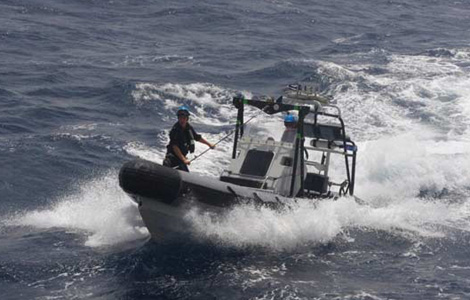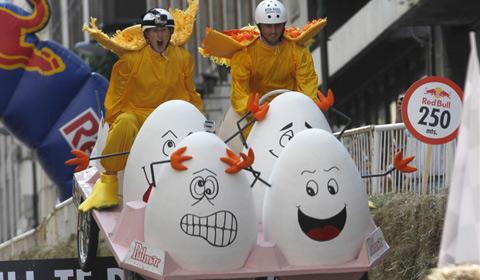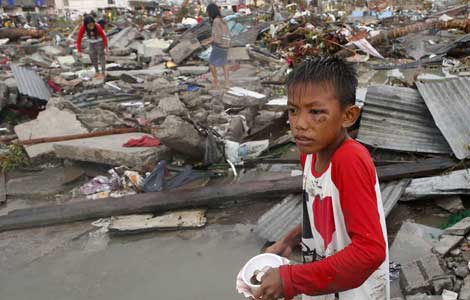Iran to give UN inspectors more access to nuclear sites
Updated: 2013-11-12 00:22
By Zhao Yanrong (China Daily)
|
||||||||
Agreement comes as powers fail in broader diplomatic talks in Geneva
|
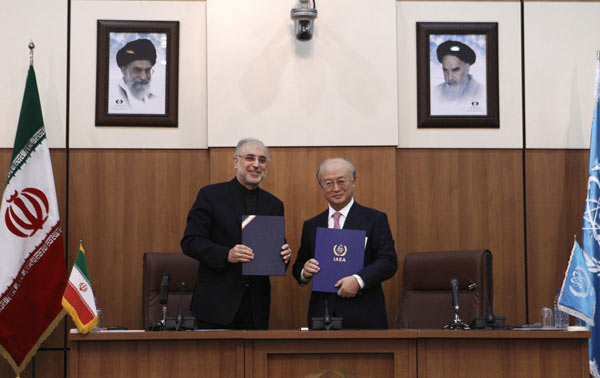 |
|
Ali Akbar Salehi (left), head of Atomic Energy Organization of Iran, shows an agreement with Yukiya Amano, chief of the International Atomic Energy Agency, at a news conference in Teheran on Monday. Photo by Xinhua |
Iran will grant UN inspectors "managed access" to a uranium mine and a heavy water plant within three months as part of a deal agreed on Monday aimed at improving transparency in the Islamic state's disputed nuclear program.
It was signed by UN nuclear agency chief Yukiya Amano in Teheran after Iran and six world powers failed in broader diplomatic talks in Geneva over the weekend to clinch an agreement to help allay Western fears that Iran may be seeking a nuclear weapons capability. Teheran denies the charge.
Under the accord with the IAEA, Iran will also provide information about planned new research reactors and sites for future nuclear power plants, as well as clarify earlier statements about additional uranium enrichment facilities.
The IAEA and Iran have agreed "to strengthen their cooperation and dialogue aimed at ensuring the exclusively peaceful nature of Iran's nuclear program," a joint statement distributed in Vienna said.
Officials and diplomats from the five permanent members of the United Nations Security Council, plus Germany and Iran, held the talks over the latter's controversial nuclear program.
During the talks, Chinese Vice-Foreign Minister Li Baodong called on parties concerned to continue the dialogue to enhance mutual trust and expand consensus.
"China has always maintained that the issue should be resolved via dialogue," said Li, adding that China will continue to stay in contact with all parties concerned and contribute to the issue's peaceful settlement through political and diplomatic means.
"We came to Geneva to narrow the differences, and I can tell you without any reservations, we made significant progress," US Secretary of State John Kerry said.
"It takes time to build confidence between countries that have really been at odds with each other for a long time now," he said.
French Foreign Minister Laurent Fabius also said he believed the deal on Iran's nuclear program is "not far".
However, Iranian President Hassan Rouhani insisted the nation would not be pushed to give up uranium enrichment.
"The rights of the Iranian nation are our red line. National interests are our red line," Rouhani said. "Among those rights are nuclear rights within the framework of international law, including the right to enrich uranium on Iranian soil."
The proposal under consideration in Geneva was to have been the first stage of a multi-part agreement, the New York Times reported.
It called for Iran to freeze its nuclear program for up to six months so negotiations on a long-term agreement could take place without the worry Iran was racing ahead to build nuclear weapons.
In exchange, the West would provide some easing of the international sanctions that have battered Iran's economy.
On Monday, the chief of the International Atomic Energy Agency talked with Iranian officials on a proposal to expand the monitoring of the country's nuclear sites, which could boost wider negotiations over Tehran's atomic program.
"We had successful negotiations regarding further cooperation between Iran and the agency in various fields," said Ali Akbar Salehi, head of the Atomic Energy Organization of Iran. "This led to agreeing on a joint statement that sets the roadmap for cooperation."
Yao Kuangyi, an expert of Middle East studies and former Chinese ambassador to Turkey, said the peaceful solution of Iran's nuclear issue is in China's and many countries' interests.
Oil prices rose on Monday after negotiations in Geneva were stalled, the Associated Press reported.
"All countries involved in the talks want to solve the Iranian nuclear issue because the energy as well as the pipelines in the Middle East bear a great significance for the whole world," Yao said.
Guo Xiangang, vice-president of the China Institute of International Studies, said the nuclear issue is one of the key problems in Iran's relations with Western countries.
"Since Iran has stated that the nuclear issue reflects on their national dignity, they will not give up their rights to use nuclear energy for peaceful purposes. But they are likely to adopt more flexible approaches during talks to lift the sanctions on it," Guo said.
Hua Liming, the former Chinese ambassador to Iran, said Rouhani made the promise to Iranian people to change the country's relations with the West after he won the election in June.
"But the final agreements, such as how many nuclear technologies and programs Iran should keep and how many economic sanctions the West should loosen, will take time as all are crucial interests for the parties involved," Hua said.
The six nations and Iran agreed to meet again on Nov 20 at the conclusion of their talks on Saturday.
Reuters and Mo Jingxi contributed to this story.
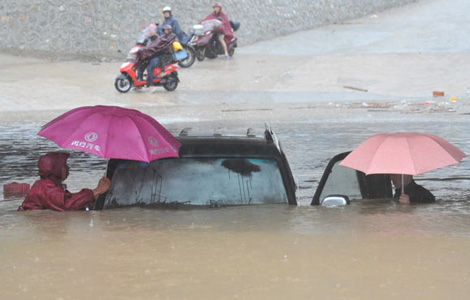
 Typhoon Haiyan claims 6 in S. China
Typhoon Haiyan claims 6 in S. China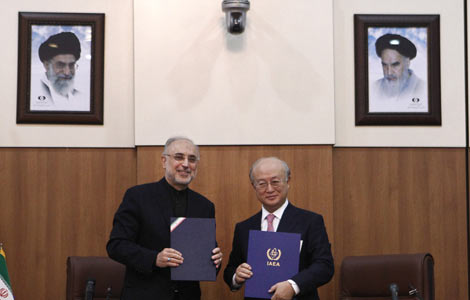
 Iran to give UN inspectors more access to nuclear sites
Iran to give UN inspectors more access to nuclear sites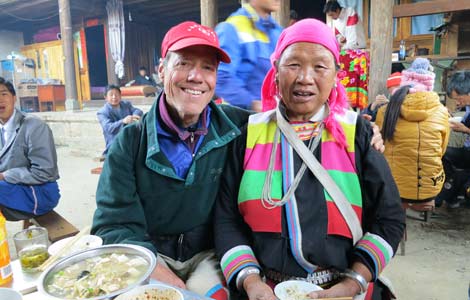
 In love with Yunnan
In love with Yunnan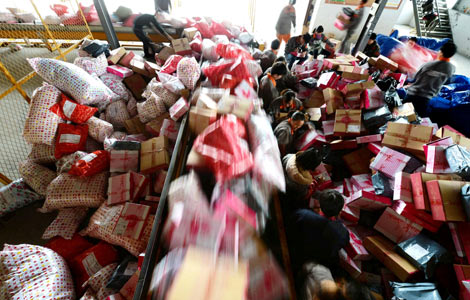
 Online shopping gala sets records
Online shopping gala sets records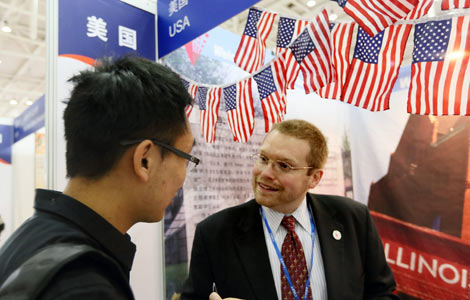
 Report shows jump in Chinese students going to the US
Report shows jump in Chinese students going to the US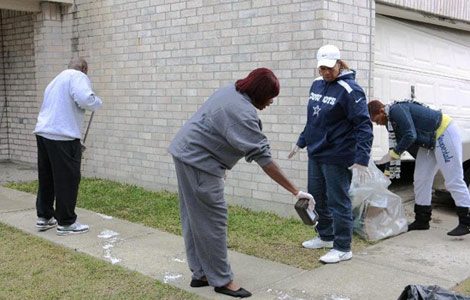
 2 killed in Texas party shooting
2 killed in Texas party shooting
 Traditional retail battles websites
Traditional retail battles websites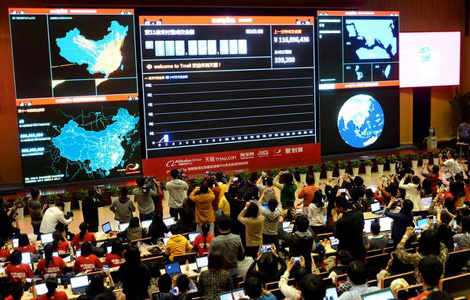
 Singles Day becomes China's Black Friday
Singles Day becomes China's Black Friday
Most Viewed
Editor's Picks

|

|

|

|

|

|
Today's Top News
Sasser: An optimistic realist on US-China relations
ABC apologizes again for Kimmel 'joke' debacle
Global talent lacking in China
Journalists lead lonely-heart list
Iran to give UN inspectors more access
Reform expected to dominate talk at plenum
Real-estate bubble seen bursting
More Chinese students going to US
US Weekly

|

|

